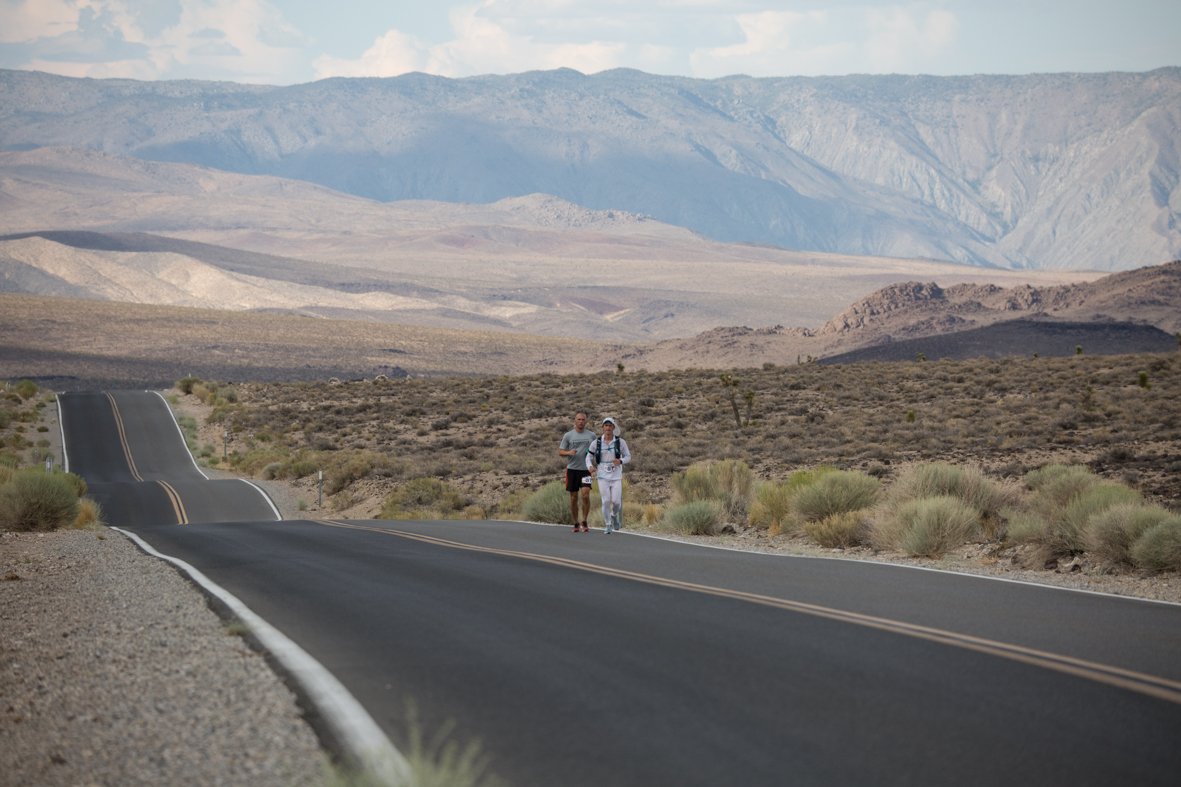Summer 2018 has been rich with sporting accomplishments for Gift of Life. Fundraisers have set new records in all types of activities, on mountains, in water and in deserts. The key part is that they did so not only to propel their body and spirit to new heights, but to join together in a common charitable cause. The fundraising campaign for bone marrow transplant surgery for young athlete Sergei Gerasimov raised over £16,000 out of the total £20,000 needed. The surgery was a success, and so another of the children in Gift of Life’s care has been given the chance to recover and regain a normal life.
Below, we quote several participants in the Sergei Gerasimov fundraising campaign. These are their views on the need to draw attention to charity projects. Their enthusiasm is contagious.
Fundraiser Sergei Ionov is a financier working at Morgan Stanley. He was the only Russian speaker to finish the 2018 USA Badwater ultra marathon, one of the world’s most challenging at 135 miles, and raised over £5,200 for Gift of Life.
How did you find out about the Podari Zhizn and Gift of Life charities? What made you decide to help this charity in particular?
It happened five years ago, when I started researching what Russian and global charities there were in London. Along the way, I found out that many people run marathons for charity. That was when I found two Russian charities: Gift of Life and the Naked Heart Foundation. Helping children is something that speaks to my heart. As a father of three, I know that children’s lives matter more than anything. That was when I became a supporter, and now I couldn’t stop if I wanted to.
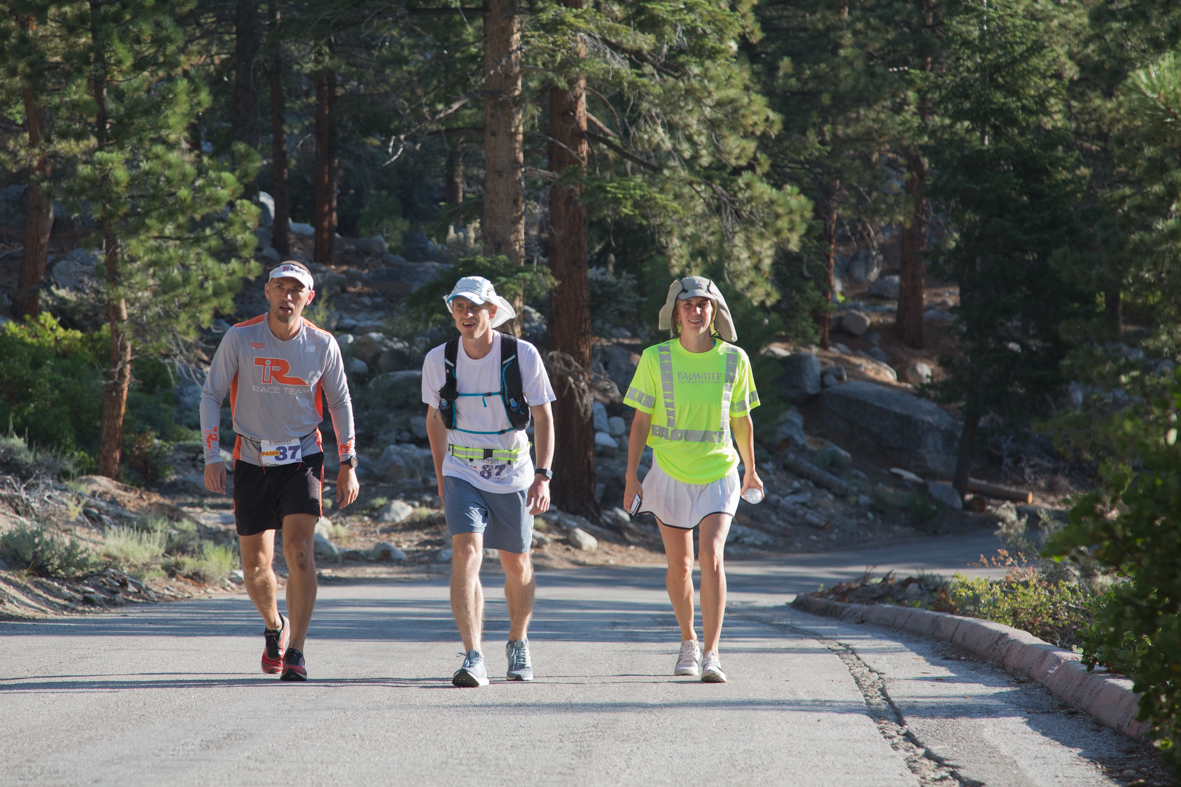
Sergei is approaching the finish, pictures with his coach John and wife Eugenia
Sergei Ionov’s advice for beginner fundraisers
1) If you’re trying to involve other people in your fundraising, you’ve got to find common interests or take them by surprise. It always pays to get them involved so that they take part themselves, learn new things and gain new experiences. It’s important not just to do things that you yourself are into, but things that other people will be interested in as well.
2) You have to set yourself a challenging goal that makes you go beyond your limits. When you add uncertainty, when you can’t be sure whether you’ll make it, you also add excitement.
3) When I run a fundraising campaign, I’m not the only one who knows I’m helping someone. There will be fifty others, maybe even more, who know about it as well. Once people find out about the charity, they start getting involved and helping of their own accord. When they see money being gathered for something concrete, like an operation, that only heightens their interest.
Why set yourself huge goals and take on extreme challenges when you can just set up a Direct Debit for the charity and not have to push yourself?
Fundraising as an activity already motivates you to get good results. If it’s a simple run which I can do with my eyes closed, naturally I’m not going to build my campaign around it. But if I’ve set myself a big goal and taken on that kind of responsibility, then I find myself wanting to go one step further in motivating myself. When I launch a campaign, I pay attention to every last detail, open up the donation page and make the first donation myself. This is important to me. Then when other people start offering their support, that’s doubly motivating. I start feeling like I’m not just doing something crazy for the sake of it, but trying to achieve real results for a worthy purpose. A run for a good cause feels different. For example, when you’re 25% of the way in and there’s still a whole 75% left and you’re already on your last legs, you’re going to feel like giving up. In a run for charity, you don’t have that option.
Many experienced donors take a strategic approach to donating—they say that they’ll donate if you finish the run, or give money per mile covered, or double their starting donation. Then you figure that you can’t do the job halfway or people will feel let down and try to blot out the memory of your campaign. On the other hand, once I’ve covered the full distance, I can start reminding those who promised extra donations that I’ve lived up to my side of the bargain.
Alina Baxter, hotelier of the Corinthia Hotel London, ran 10 km in St Petersburg.
How did you find out about the Podari Zhizn and Gift of Life charities? What made you decide to help this charity in particular?
I learned about these charities through my job. I deeply respect their work and I always wanted to find a way to personally take part and help the children in Gift of Life’s care. This wasn’t my first run for charity. I always choose charities which help children. One of my most recent was a charity that helps disabled children wanting to become full-fledged sports players. It’s great when someone has a clear wish. All you need to do is make it come true. All children deserve to be happy.
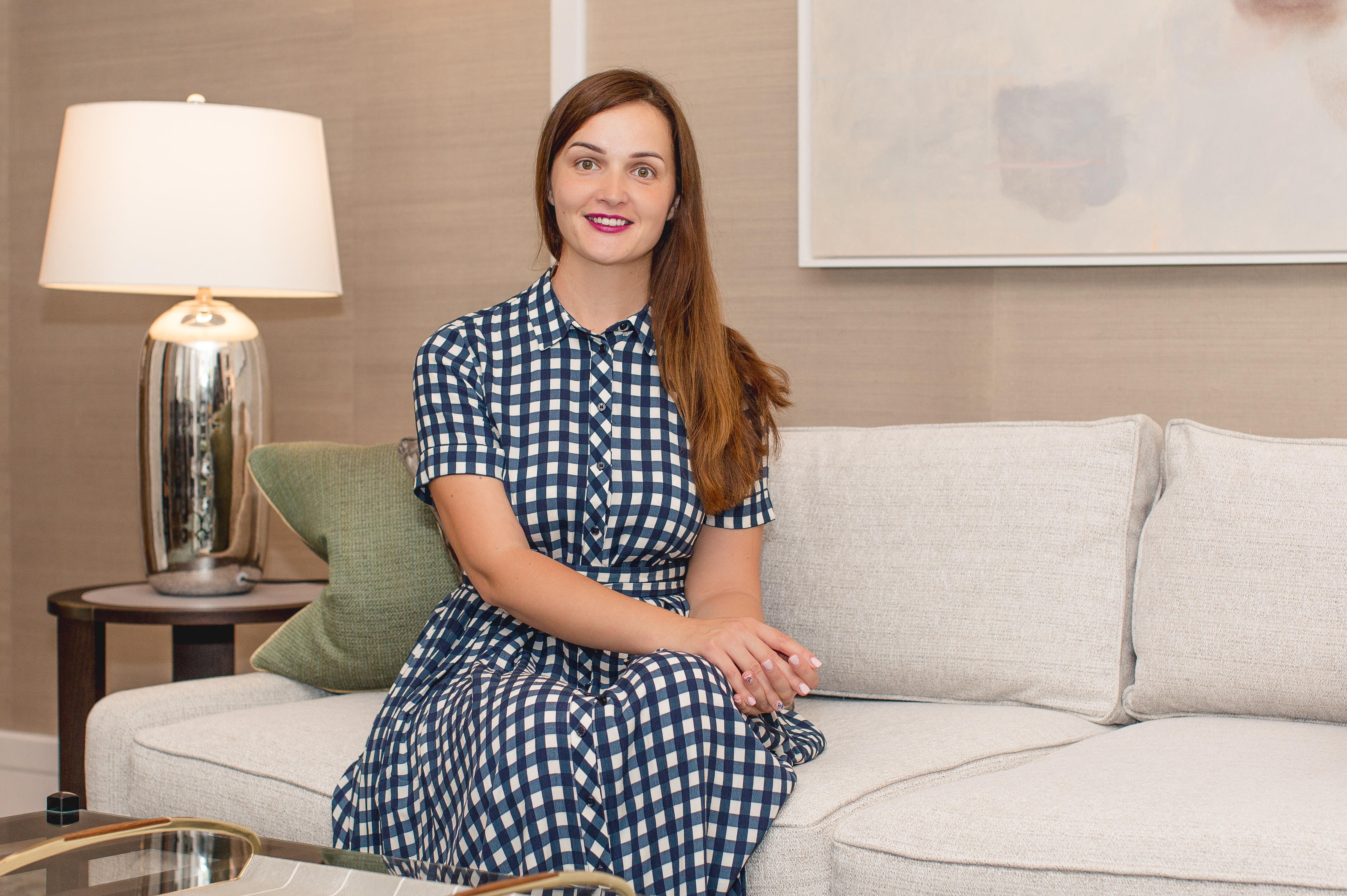
Alina Baxter at work
Do your friends and colleagues know that you’re helping the charity? Do they support you?
Yes, many know, and they’ve supported me as best they can. On this occasion we raised about £600, and I’m grateful to everyone who decided to take part. This achievement belongs to every one of us equally.
Sporting achievements are so common nowadays that it’s no mean feat to surprise someone with them, much less motivate them to donate money for a run, swim etc. Does active fundraising need new frontiers, or should it simply become part of our culture, so that sharing, and sympathy become everyday things?
It’s true that there’s a vast number of events now, especially in Europe. Every week, I get invitations to take part in one run or another. In this case, it’s the participant who determines their own challenges and decides how far to go. Every fundraiser is responsible for themselves. I’m always happy to do something for a good cause. I didn’t set any personal records this time around, but that wasn’t my goal in the first place.
We all have a unique combination of skills and abilities. We can either apply them to achieve incredible things, or not. That’s entirely up to each of us. My friends and colleagues eagerly took part, and I think all of them enjoyed knowing that they were part of this mini-project.
Konstantin Sidorov, entrepreneur and old friend of the charity climbed Lenin Peak (Kyrgyzstan-Tajikistan, 7,134 m), several days after climbing Elbrus (Russia, 5,642 m) together with businessman and philanthropist Igor Tsukanov.
How would you give your child a simple and concise explanation of what charity is and why it’s necessary?
I’ve talked to my children (6 and 9) about charity, and they liberally share their savings with school charities. Parents in the UK don’t have to specially explain to their children why they should give to charity and why it’s important to help those around you. London has developed as a unique location where children start taking this in with their mother’s milk. All I do is explain to them that they’ve been lucky compared to other children, and that not many people have the things they do. If they don’t help those who don’t have things they need, no one will. When it comes to Gift of Life, many children don’t have the money they need just to recover from being ill. And that’s unfair. This is why those who can help must do so for those who can’t help themselves. It’s easier to explain to a child in terms of toys or books—if you’ve read the book a couple of times, give it to someone else instead of throwing it away. Take it to the school library or a book exchange. That goes for everything else too, both your things and your time.
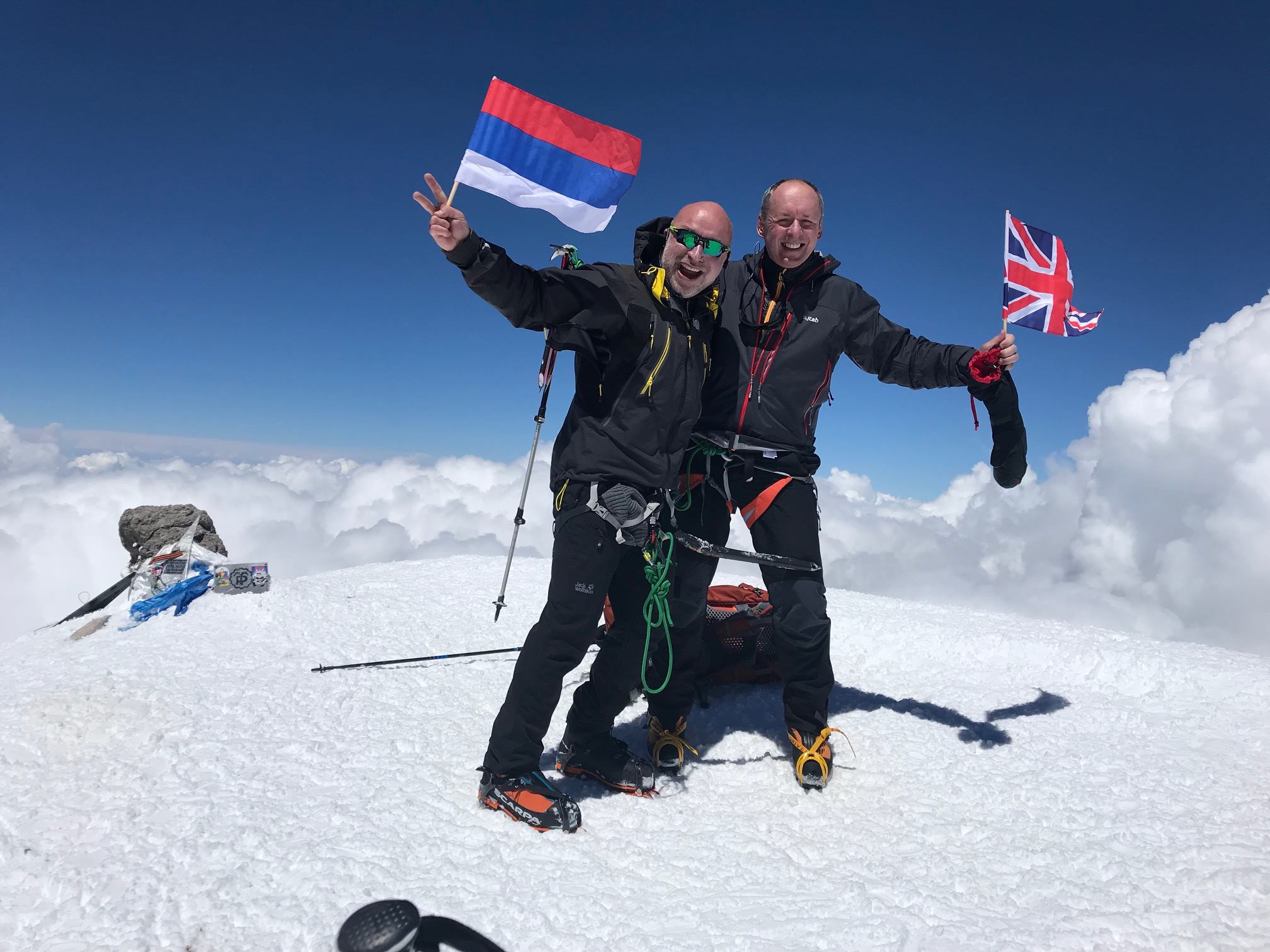
Konstantin and Igor have conquered mount Elbrus
Konstantin Sidorov’s advice for beginner fundraisers
1) It doesn’t matter how much you raise. What matters is taking part. If you support Gift of Life or another charity on Facebook, you’re already helping because it means more people will find out it exists. Even if you can’t gather £10-15,000 in one fell swoop, but just £100, that’s still a great example for other people.
2) If you’re doing something that’s unusual for you, whether that’s cycling 100 km, climbing a mountain or swimming 300 m—everyone has their own peaks to conquer—and you see that you’re conquering a peak of your own, then why not get a charity involved and ask your friends to support you? Don’t let shyness hold you back.
Igor Tsukanov:
Our expedition let us gather £1,627 for Gift of Life. Some might say, “You know, those two could have just donated half each.” But that’s not the point. We already do that. The point is to draw people’s attention to the charity. You have to have thousands of people read about it.
Pavel Morozov, Gift of Life patron, is preparing to swim the English Channel in August 2019.
My story might be the inspiration somebody needs to overcome their own challenges. I’ve heard of cancer patients who set themselves the goal of crossing the Channel when they got better, and in the end, they managed to do that very thing.
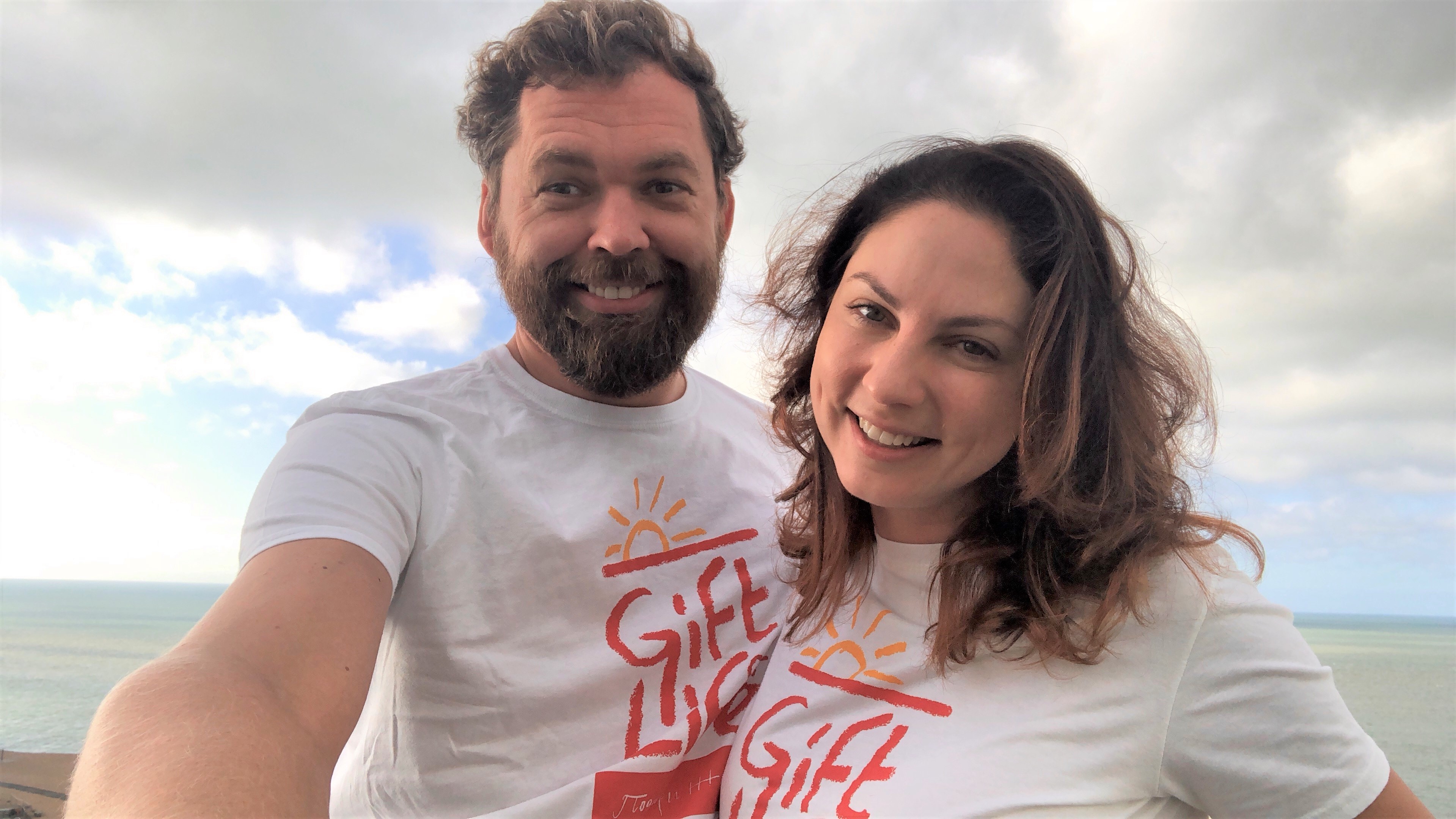
Pavel Morozov is embracing the challenge, pictured with his wife Julia
***
Stories like these are proof that it’s not so hard to break through your own limits when you’re thinking of those who are suffering from fear and pain right now. That’s even more true when you have the support of friends, colleagues and even strangers. Sporting charity campaigns are easier and more impactful than they look. Find out what you’re capable of together with Gift of Life!

